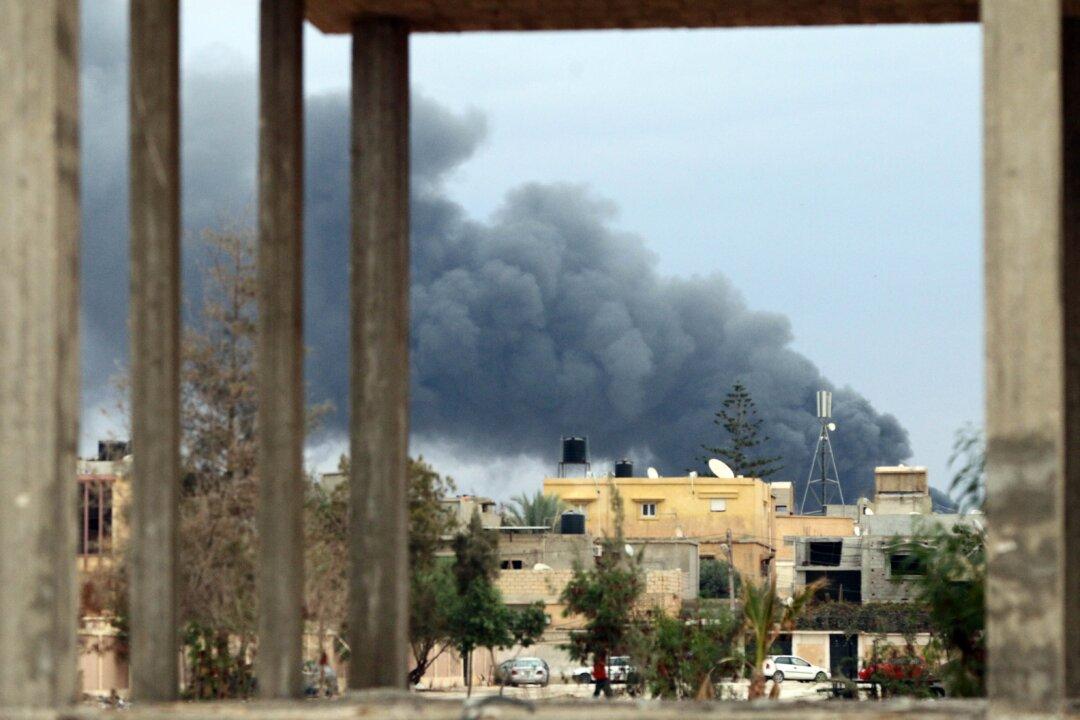BENGHAZI, Libya—Libyan army troops on Wednesday pushed into Benghazi, the first time in two months that government forces had entered the eastern city, which has been under control of Islamist militias.
The advance was a significant boost to the troops, though fighting was still raging in Benghazi and the army had a long battle ahead, said Meloud al-Zewi, spokesman for Libya’s special forces.
Al-Zewi said Libyan troops first swooped into the district of Benina, where Benghazi’s airport is located, then took control of other districts, including the eastern, heavily populated neighborhood of Sedi Khalifa.
Pictures of soldiers kissing the ground and residents welcoming the armored vehicles were widely circulated on social networking sites.
On its official Facebook page, the Libyan army urged residents to stay from crowding around the army in their joy for fear this would make them an easy target.
[aolvideo src=“http://pshared.5min.com/Scripts/PlayerSeed.js?sid=1759&width=480&height=300&playList=518474967&responsive=false”]
Libya is witnessing its worst spasm of violence since the downfall of the longtime dictator Moammar Gadhafi. Three years after his killing at the hands of rebel forces, the country has been taken hostage by militias, whose loyalties are either to their local area or to Islamist extremist ideology.
Successive governments have failed to rein in the militias and instead have bankrolled them to maintain order in the absence of a strong army and police.
The turmoil in Benghazi started when renegade Gen. Khalifa Hifter — a former Gadhafi army chief who joined the opposition decades before the uprising — launched a campaign against Islamist militias which were implicated in series of assassinations and attacks on journalists, activists, and security forces in the city.
Hifter won support among large sectors of Libyans but the army units loosely allied with him were defeated and forced to leave the city by Islamist militias.
Then, the internationally-recognized government, led by Abdullah al-Thinni, joined ranks with Hifter and on Oct. 15, launched a wide offensive to retake the city.
On Tuesday, al-Thinni government said it is forces are ready to retake the capital, Tripoli, which also fell into the hands of militias from the coastal city of Misrata and allied to Islamist factions.
From The Associated Press
